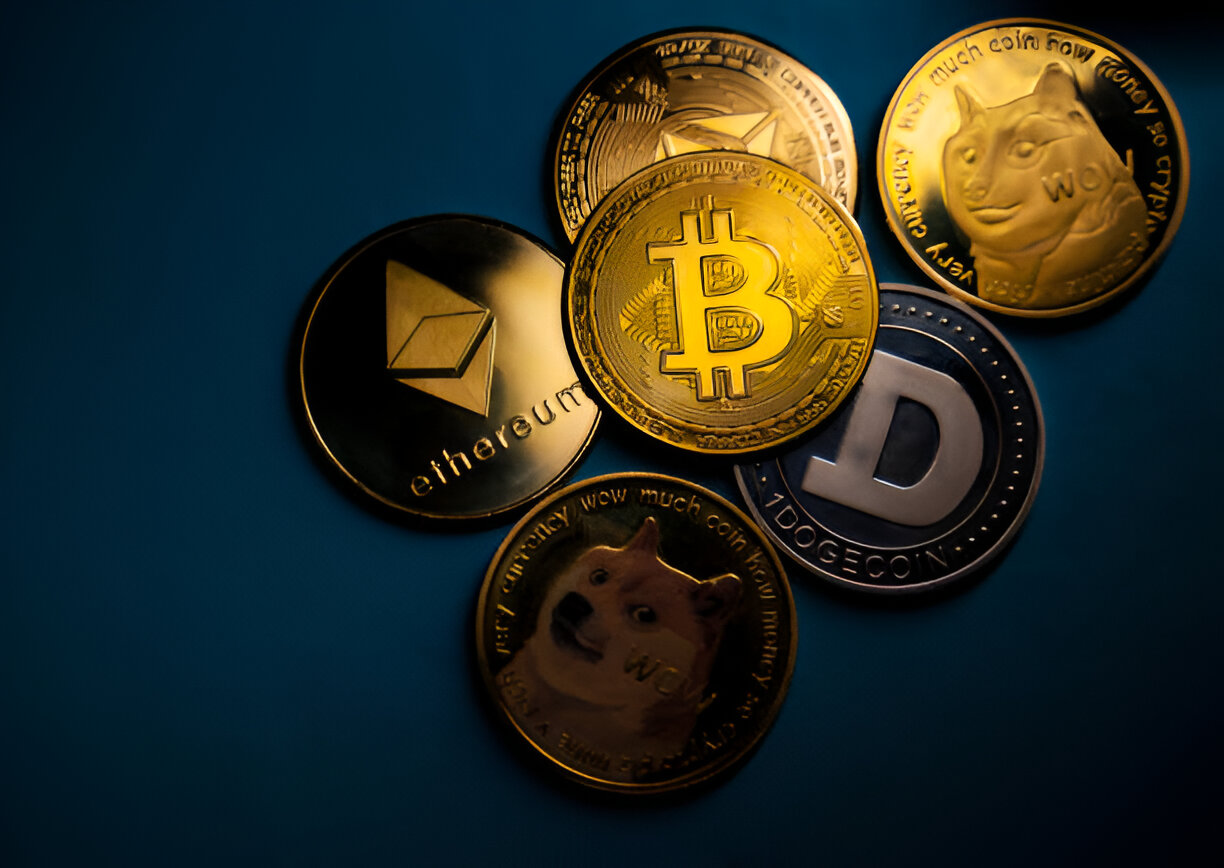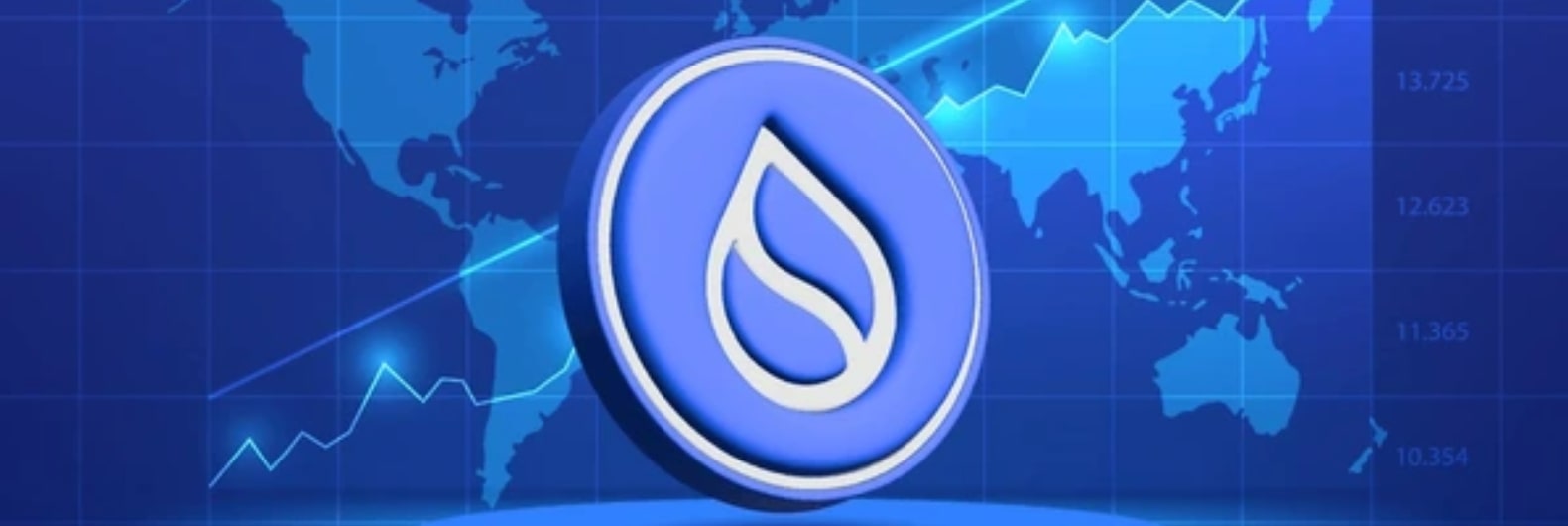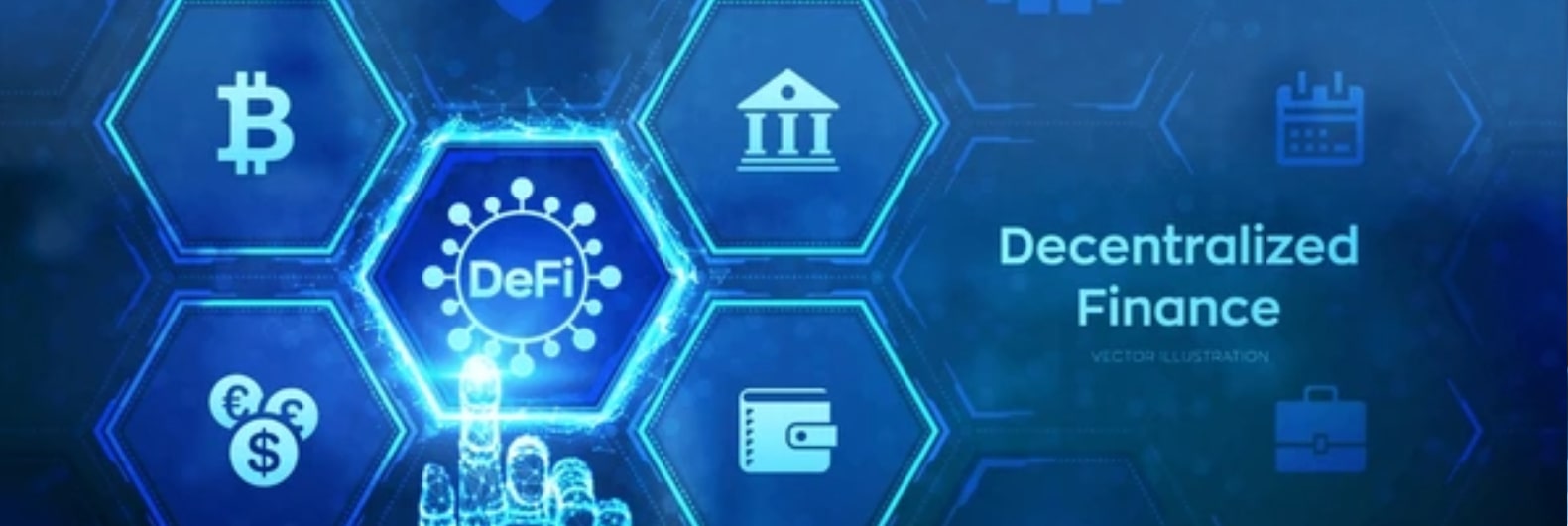Decentralized Finance (DeFi) is changing the way we handle money. By getting rid of middlemen like banks, DeFi makes financial transactions faster, easier, and more accessible for everyone.
In Europe’s emerging markets, DeFi is opening up new opportunities for people who couldn’t always access traditional banking services. Now, they can save, invest, and send money with just a few clicks, without the high fees or delays.
In this article, we’ll take a closer look at how DeFi is making a difference in these developing economies and what it could mean for the future of finance in Europe.
What is Decentralized Finance (DeFi)?
Decentralized Finance, commonly known as DeFi, is a financial system built on blockchain technology that allows users to access financial services without relying on traditional banks or intermediaries. Instead of going through institutions like banks, people can directly manage their finances using decentralized networks.
The key idea behind DeFi is to make financial transactions faster, cheaper, and available to anyone with an internet connection. For example, with DeFi, you can send money, take out loans, or invest without dealing with lengthy processes or high fees imposed by traditional banks.
DeFi operates on blockchain technology, which is secure and transparent. Every transaction is recorded on a public ledger, making it easy for users to track and verify. Smart contracts, which are self-executing contracts with the terms of the agreement directly written into code, are another cornerstone of DeFi. These contracts ensure that transactions are processed automatically when specific conditions are met.
DeFi in Emerging Markets - A Game Changer
Traditional banking can be slow, expensive, and out of reach for many. DeFi changes that by offering fast, affordable, and accessible financial services, making it available to anyone with an internet connection.
1. Filling the Gaps in Traditional Banking
In many developing regions, getting access to a bank can be a challenge. Long distances, limited infrastructure, or strict requirements make it difficult for people to open accounts or apply for loans. DeFi solves this by being fully digital. Users only need an internet connection and a wallet to access services like lending, borrowing, and saving.
2. Boosting Financial Inclusion
DeFi opens up the financial world to people who might otherwise be excluded. Through decentralized platforms, individuals who don’t have a bank account can now save money, take out loans, or even invest in opportunities that were previously out of reach. It’s all about giving more people access to financial tools, regardless of where they live.
3. Lower Costs and Faster Transactions
One of DeFi’s biggest advantages is cutting out the middlemen. Traditional banking services, especially for international transfers, are often slow and expensive. DeFi operates on blockchain, where transactions are faster and significantly cheaper, making it ideal for businesses and individuals who need quick, low-cost solutions.
4. Encouraging Growth and Innovation
DeFi also has a huge impact on local economies. By providing easier access to capital and financial services, it enables more entrepreneurship and business development. Whether it’s securing funding for a new business or making cross-border payments, DeFi empowers people to innovate and grow their ventures.
By breaking down barriers and offering more efficient alternatives, it’s helping to reshape the future of finance in these regions.
Key Benefits of DeFi for Emerging Markets
Decentralized Finance offers a range of practical benefits that can have a big impact on emerging markets. Here’s why DeFi is such a valuable tool:
- Accessibility – Anyone with internet access can use DeFi, making it available even in areas where traditional banking is limited.
- Lower Costs – DeFi services often come with lower fees compared to banks, making financial services more affordable for everyone.
- Faster Transactions – DeFi processes transactions much quicker than traditional methods, especially for international transfers.
- Financial Control – DeFi gives users full control over their own assets, without relying on third-party institutions.
- Boosting Local Economies – Easier access to financial tools through DeFi helps fuel entrepreneurship and business growth in emerging markets.
Challenges and Risks of DeFi in Emerging Markets
While Decentralized Finance (DeFi) holds great promise for emerging markets, there are several challenges and risks that need to be considered as these systems become more widely adopted:
Lack of Awareness and Understanding
Despite the growing popularity of DeFi, many people in emerging markets are still unfamiliar with how it works. DeFi is a new and complex concept that requires users to understand blockchain technology, wallets, and digital currencies. Without proper education and awareness, many potential users may be hesitant to adopt these services, limiting DeFi’s reach.
Regulatory Uncertainty
DeFi operates in a space that often lacks clear regulatory guidelines. Governments and financial authorities in emerging markets may not yet have a concrete framework for how to regulate decentralized platforms. This uncertainty can create hesitation among users and investors, as they may be unsure how legal or compliant their use of DeFi services is. Additionally, sudden changes in regulations could impact the growth and adoption of DeFi in these regions.
Security Risks
While DeFi platforms are built on blockchain technology, which is generally considered secure, they are still vulnerable to hacks, bugs, and technical failures. In the past, some DeFi platforms have experienced high-profile security breaches that led to significant financial losses for users. In emerging markets where financial literacy may be low, users could be at even greater risk of falling victim to scams or losing their funds due to a lack of understanding of how to secure their digital assets.
Volatility of DeFi Assets
Many DeFi platforms rely on cryptocurrencies as the medium for transactions and investments. However, the role of Cryptocurrencies in DeFi can be extremely volatile, with values fluctuating dramatically over short periods. This volatility poses a significant risk for users in emerging markets who may be looking for stable financial tools. The unpredictable nature of cryptocurrency prices can make DeFi less reliable for everyday transactions or long-term investments.
Internet Access and Digital Infrastructure
While DeFi offers global accessibility, it still relies heavily on consistent internet access. In some emerging markets, internet infrastructure may be limited or unreliable, making it difficult for users to take full advantage of DeFi platforms. Additionally, the need for smartphones or computers to access DeFi can be a barrier for those who lack these devices or the necessary digital literacy.
What’s Next for DeFi in Europe?
As Decentralized Finance (DeFi) continues to evolve, its role in reshaping Europe’s emerging markets is becoming increasingly significant. So, what lies ahead for DeFi in this region?
1. Wider Adoption Through Simplification
In Europe’s emerging economies, many people still have limited access to traditional banking systems. As DeFi platforms become easier to use, more people will likely adopt these tools. Simplifying user interfaces and reducing the technical knowledge required to interact with DeFi will be key. This could help bring financial services to underserved communities in Eastern and Southern Europe, where traditional banking infrastructure is often sparse.
2. Growing Support from Regulators
European regulators are increasingly paying attention to DeFi. As the European Union (EU) works on clearer guidelines for digital assets and decentralized finance, we can expect a more supportive regulatory environment. Regulatory clarity will not only build trust but also attract more users and investors in regions like the Balkans or the Baltics, where financial innovation is gaining momentum. Striking the right balance between regulation and innovation will be crucial for long-term success.
3. Enhanced Security and Stability
One of the main barriers to DeFi adoption in Europe’s emerging markets is security. As DeFi platforms mature, they are likely to implement more robust security measures, including better protection against hacking and fraud. Additionally, as the DeFi ecosystem stabilizes, we can expect reduced volatility in the assets that power these platforms. This stability is especially important for countries in Central and Eastern Europe, where volatile financial markets have historically been a concern.
4. Partnerships with Traditional Financial Systems
As DeFi grows, there’s potential for collaboration between DeFi platforms and traditional European banks. Hybrid systems, where DeFi complements traditional banking services, could offer a bridge for people transitioning from conventional finance to decentralized solutions. In countries like Poland or Hungary, where traditional financial services are developing rapidly, these partnerships could provide a smoother integration of DeFi into everyday financial life, expanding the reach of both systems.
5. Catalyst for Economic Growth
DeFi has the potential to accelerate economic growth in Europe’s emerging markets by giving small businesses and entrepreneurs access to capital and financial tools that were previously unavailable or too expensive. By lowering the barriers to financing, DeFi could foster innovation, especially in tech-forward regions like Estonia or Slovakia. As more individuals and businesses gain access to DeFi services, the ripple effect on local economies could be substantial, driving entrepreneurship and job creation.
As DeFi becomes more accessible, secure, and integrated with traditional finance, it holds great promise for Europe’s emerging markets. With the right regulatory support and technological advancements, DeFi could play a central role in building a more inclusive and innovative financial future for these regions.
Final Thoughts
Decentralized Finance (DeFi) presents significant opportunities for Europe’s emerging markets. Utilizing DeFi development services, financial offerings become more accessible and affordable compared to traditional options, potentially transforming the lives of individuals and businesses that have long been underserved. DeFi's capacity to eliminate barriers and generate new opportunities positions it as a vital instrument for enhancing financial inclusion throughout the region.
However, several challenges persist. Establishing trust through robust regulations and enhancing security measures are crucial for fostering broader adoption. Additionally, increasing awareness and understanding of DeFi’s functionalities will be essential for its expansion in these markets.
Looking to the future, DeFi has the ability to revolutionize Europe’s developing economies by driving innovation and stimulating economic growth. With appropriate support and advancements, it could play a central role in creating a more inclusive and equitable financial landscape for these regions.













